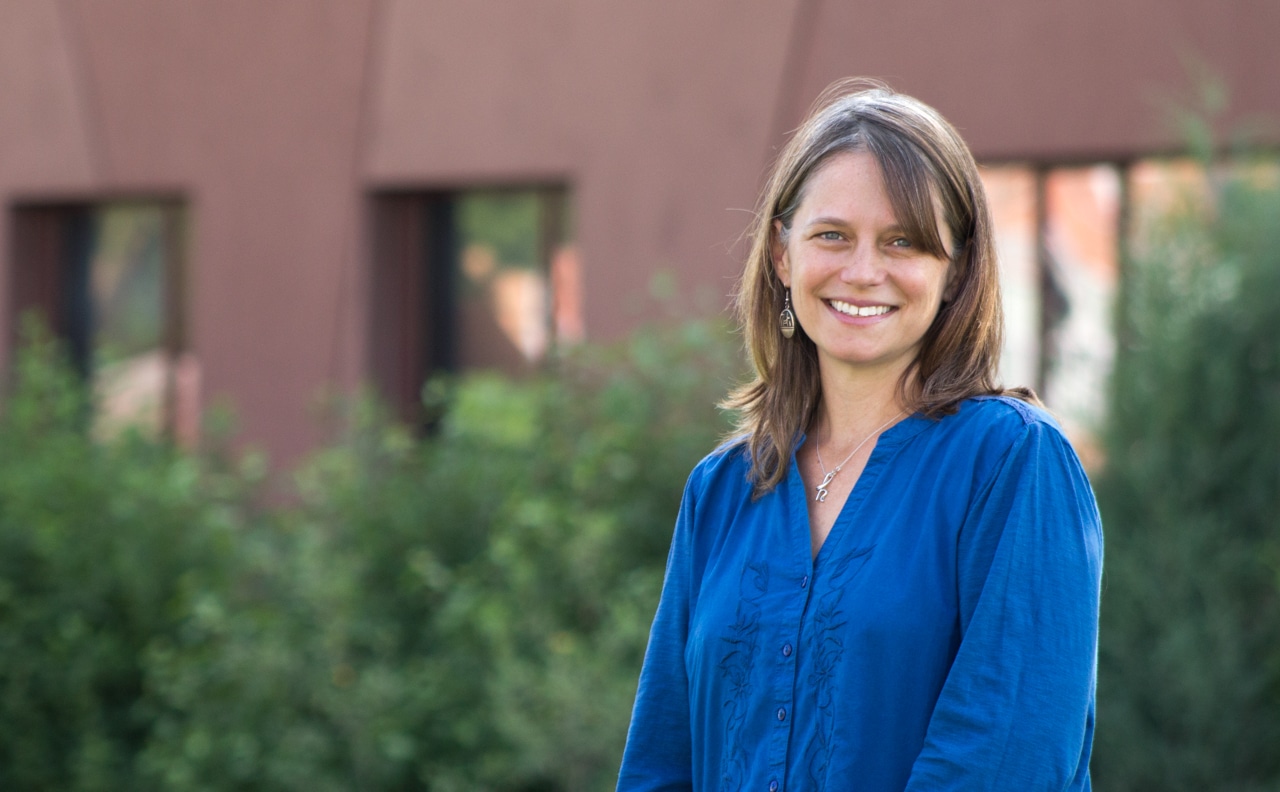Researchers develop cancer screening program for Native American women with disabilities

How can you encourage breast and cervical cancer screenings for Native American women with intellectual and developmental disabilities?
A group of researchers from Northern Arizona University and the University of Arizona and their community partners found that emphasizing traditional teachings about health, highlighting the importance of prevention for caregivers and supporters, connecting advocacy to family and community, and partnering with local practitioners and local spiritual leaders and healers are important for cancer screening success.
“Individuals with intellectual or developmental disabilities, including those that are Native American, experience disparities in getting needed health services, like cancer screenings,” Heather Williamson, project lead and associate professor, Occupational Therapy and the Center for Health Equity Research (CHER), said. “Our project team decided we needed to hear from women with disabilities, their supporting family and friends and community members to understand what we could do to make accessing health care easier.”
To understand barriers to receiving breast and cervical cancer screenings for Native American women with intellectual and developmental disabilities, the research team interviewed them, their caregivers, healthcare and disability service providers, and community leaders. In total, they interviewed 30 rural-residing individuals and 18 urban-residing individuals in person or over the phone.
The researcher’s main question was, “What are the influences on breast and cervical cancer screening for Native American women with intellectual and developmental disabilities?”
They published their results, “Adapting a Cancer Screening Education Program for Native American Women with Disabilities,” in the International Journal of Environmental Research and Public Health.
Researchers on the publication from Northern Arizona University included Williamson; Regents’ professor Julie A. Baldwin, CHER director; and graduate assistants Andria Begay and Jennifer Etcitty. Researchers from the University of Arizona include Julie S. Armin, Assistant Professor, Department of Family & Community Medicine; Agnes Attakai, Director of Health Disparities, Mel and Enid Zuckerman College of Public Health; and community collaborator, Kim Russell, Director, Arizona Advisory Council on Indian Health Care.
The researchers also partnered with Hopi Cancer Support Services, a Centers for Disease Control and prevention-funded breast and cervical cancer early detection program; and the Tucson Indian Center, a provider of health and social services to Native American people in southern Arizona.
Finding answers to promote cancer screening
From the interviews, researchers found a lack of attention to disability in many health interactions and a need for providers to develop relationships with their patients, take extra steps to make their patients feel comfortable, and respect patient concerns.
Reasons for not getting breast or cervical screenings included:
- Financial concerns
- Attitudes and beliefs about healthcare
- Fears about what happens during a cancer screening
- Concerns about cancer
- Need for more information about cancer screenings
- Provider biases about the health needs of people with disabilities
- Caregiver perspectives on the need for cancer screenings
- Long travel time and wait time experienced previously when trying to access health care
- Lack of accessibility of healthcare facilities
Adaptations for My Health My Choice
From the results of their research, the team created the “My Health My Choice” screening and education program for women with intellectual and developmental disabilities who are Native American here in Arizona.
“The My Health, My Choice program focuses on being a healthy woman, advocating for the health care you want and learning what happens during breast and cervical cancer screenings,” Armin said. “Women who go through the program should feel more confident in their ability to get these cancer screenings.”
Researchers adapted My Health, My Choice from a cancer screening program called “Women Be Healthy 2” which was developed by researchers from the University of North Carolina Frank Porter Graham Child Development Institute.
Some of the adaptations included emphasizing traditional teachings about health, highlighting the importance of prevention for caregivers and connecting advocacy to family and community. They also shortened the length of the program and partnered with local practitioners and local spiritual leaders and healers. My Health My Choice built on the original program’s relaxation techniques, which can be used to manage anxiety around getting cancer screenings.
“We are still providing the My Health, My Choice program and would encourage those interested to contact us at myhealthmychoiceaz@gmail.com,” Williamson said.
Research reported in this publication was supported by the National Cancer Institute of the National Institutes of Health under the awards for the Partnership of Native American Cancer Prevention U54CA143924 (UACC) and U54CA143925 (NAU). Armin’s work on this manuscript was partly supported by a grant from the Department of Health and Human Services, Administration for Community Living, Administration on Intellectual and Developmental Disabilities—University Affiliated Programs, Grant No. 90DDUC0090-01-00.